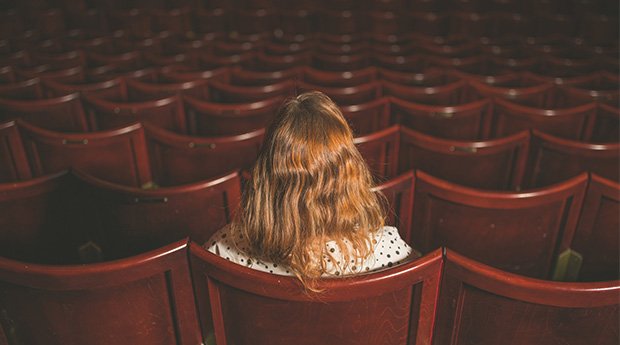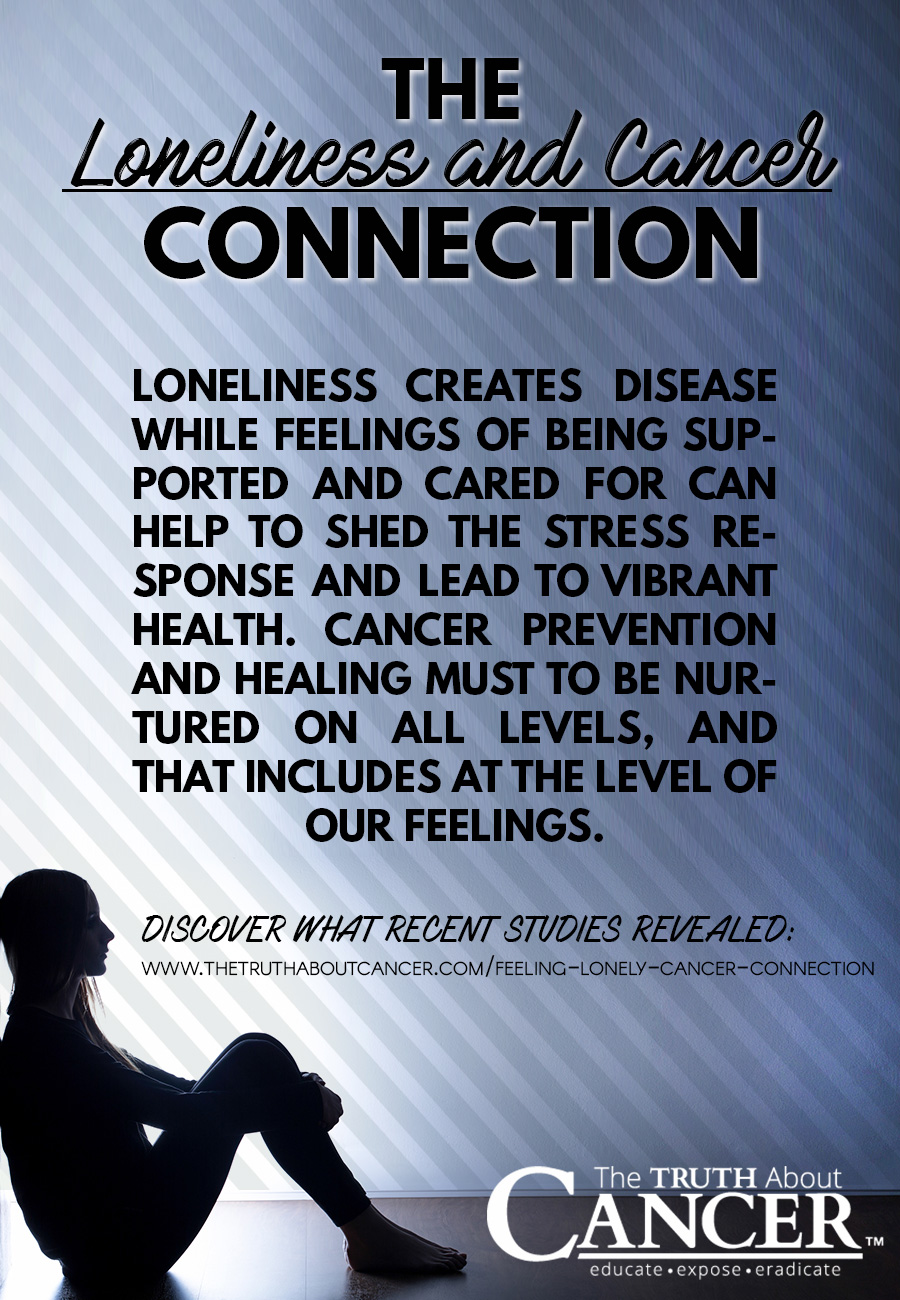Did you know that that loneliness can literally break our heart and make us sick? According to recent research, this most uncomfortable emotion is associated with heart disease as well as high blood pressure. And those two conditions seem to be just the tip of the iceberg when it comes to the correlation between feeling lonely and disease. Studies also reveal the link between social isolation and cancer.
Study Says Feeling Lonely Affects Us on a Biological Level
A meta-analysis of 70 studies done by Brigham Young University recently found that feelings of loneliness can increase a person’s chance of dying by 26 percent. This is even more than depression and anxiety, which is associated with a 21 % increase in mortality. A ground-breaking joint study conducted in part by research teams from the University of Chicago and the University of California, Los Angeles, may have discovered what makes this emotion so harmful on a biological level.
“The level of toxicity from loneliness is stunning,” said University of Chicago psychologist and expert on loneliness John Cacioppo in an interview about the subject for MSN News.
The harm, according to the report published in the November 2015 Proceedings of the National Academy of Sciences, can be seen at the cellular level. Cacioppo and others found that loneliness can lead to long-term “fight or flight” stress signaling which affects immune system functioning − in particular the production of white blood cells.
The 2015 study did a deeper dive into previous research conducted by the same team. In those previous studies, they found that feelings of loneliness can be linked to a phenomenon called “Conserved Transcriptional Response to Adversity” or CTRA. This is when there is an increase in gene expression for inflammation while at the same time there is a decrease in expression of genes responsible for protection against viruses.
The 2015 study looked at leukocytes, or white blood cells, which help the body fight pathogens. They found that white blood cells of lonely humans and animals showed signs of CTRA. In animal studies, the researchers also found higher than normal levels of norepinephrine, a neurotransmitter commonly connected to the fight-or-flight response.
They also discovered that the CTRA process and lonely states seem to have a “reciprocal relationship.” In other words, CTRA can propagate states of loneliness and visa versa. The relationship between chemical and biological functions and loneliness, according to the researchers, was independent of other factors such as depression, generalized stress, and whether or not a person has social support.
What does this mean for those wanting to heal or prevent cancer? Simply put, people who feel lonely have less immunity and more inflammation than people who aren’t. These conditions are directly related to what happens when the body is in a chronic stress state and these same conditions have been linked to up-regulation of genes that can contribute to cancer. According to a previous study conducted by UCLA genetic researcher Steven Cole:
“Beta-adrenergic signaling from the sympathetic nervous system has been found to up-regulate a diverse array of genes that contribute to tumor progression and metastasis, whereas glucocorticoid-regulated genes can inhibit DNA repair and promote cancer cell survival and resistance to chemotherapy.”
The Roseto Effect: Can a Sense of Community Actually Heal Disease?
Interestingly, through the years other research has pointed to the fact that the opposite may also be true. Feelings of social inclusion and support may actually lead to disease resistance.
The “Roseto Effect” was coined after a groundbreaking 50-year study of residents of Roseto, Pennsylvania, by Dr. Stewart Wolf (then head of Medicine at the University of Oklahoma) and his team. Several studies were conducted in this enclave of mostly Italian immigrants over the the course of five decades. Comparative studies were also conducted in the nearby towns of Bangor and Nazareth.
In the 1960s, heart disease was on the rise in the United States overall while the incidence of heart disease and other diseases was practically non-existent in Roseto. Dr. Wolf and others were dumbfounded as to why this was since Roseto residents were, for the most part, sedentary and overweight. They smoked stogies and drank red wine with “abandon.” Most of the men worked in the local slate quarries where they were exposed to harsh environmental toxins.
Eating habits did not play a part in their seeming good health. Genetics didn’t either; relatives of Roseto residents who lived in nearby towns experienced the same rate of heart disease as the rest of the country. Dr. Wolf also observed, however, that the first generation of Roseto residents existed in a tight-knit community were traditions were upheld. No one owned a TV and celebrations and group dinners were a nightly occurrence.
Dr. Wolf and his team eventually concluded that a low-stress lifestyle and close social ties directly contributed to the disease-free state of that first generation of Roseto residents. By the 1970s, however, the second generation of Roseto residents began to conform to the national average for heart disease as they also conformed to the more “American lifestyle” of TV watching, social isolation, and higher stress levels at work and at home.
“An isolated individual can become easily overwhelmed by the challenges of everyday life,” explained Dr. Wolfe in one of the study reports. “This kind of overwhelm can trigger stress responses in the body. (The stress response) in individuals surrounded by a supportive community relaxes. This kind of relaxation translates into positive effects on the body’s physiology, leading to disease prevention and sometimes disease remission.”
Either way you look at it, you can draw the same conclusion: loneliness creates disease while feelings of being supported and cared for can help to shed the stress response and lead to vibrant health. Cancer prevention and healing must to be nurtured on all levels, and that includes at the level of our feelings. If you are feeling lonely, don’t just push it under the rug. Contact a counselor, reach out to a friend, join a support group in your area, or even consider bringing a dog or cat into your home. Not only will you feel better emotionally, you will be giving your body the amazing gift of healing as well!
Stay informed and don’t miss a single article or interview from The Truth About Cancer. Go here to be notified each week about new, cutting-edge information that impacts your health.
Article Summary
A meta-analysis of 70 studies done by Brigham Young University recently found that feelings of loneliness can increase a person’s chance of dying by 26%.
This is even more than depression and anxiety, which is associated with a 21% increase in mortality.
Loneliness can lead to long-term “fight or flight” stress signaling which affects immune system functioning.
Simply put, people who feel lonely have less immunity and more inflammation than people who aren’t.
Feelings of social inclusion and support may actually lead to disease resistance.




















This is the truth through and through. I had cancer in 2004 anc had marvellous vommunuty sjpport as well as the xupport of my husband. Ihave been through very rough stuff since 2006 culminating in my husband walking out in 2011 and leaving me penniless after35 years of marriage, then my health degenerating , my dad passing away and then my mum , my daugher moving to India with her husband and my two precious little granddaughters.. Then my brotger who knowsnothn about health took over the decisions regarding m health because he has finance and I do not . I have never experienced such an jncredjbke kevelniv stress in my kife abc I wax at risk for a second cancer.. In thrir eusdom my grwater family decidedto just cut me off leaving ne ckmpketelh alone eitb omly my so fairly close by wjo has ber through great stresx ax well so is not coobg. I have been ignored she screamjbb out for help and nibdy to visit me. My husband divorcedmein 2017 taking away all my medical aid. My rectal bowel prolapse began coming unwoub and fell apart in November 17 and I have lain alone unable to to out unable to drive and had severe abuse by doctors and medical personnel. I was taken to a doctor on Thursady who for the second time sword at me.. I have been through such intense stress I had filljngs torn out of my mouth. My nervous system immune system hormonal systems have been destroyed. My teeth and gums have disintegrated and I have parasites eating me alive. Even in this starte the verbal abusive has not stopped.. I am dying alone starvibg to death andonly my si seems to care bit just cannot cope. . I do not kniw how to die alibe. I do know the Lirdsaud Geeould never leave me nor forsake me. This us a nightmare I cannit describe and I gave felt both ends of the spectrum regarding this article. I came from a famiky where tgere was so much support and connection and go fee, yorall alone in the world is a terrifying hung.
Hello Colleen, my name is Eugenia. I am sorry that you are going through such difficult times. I will pray for you, it helps to know other people support you in prayer. I am also going throu a time of loneliness, so I understand you much. If you want to become friends throu the mail, I would love to hear from you, my mail is eu712@yahoo.com. I hope to hear from you. Hugs.
I’m so sorry to hear your all alone. Can you get involved by joining some classes. Many places offer free classes to seniors. Get a pet and something very important eat an anti inflammatory diet is really important to get your cells nourished. Take care.
If I had a cancer diagnosis, I would definitely not want to be alone. I would want to stay with people who were very positive. I would not want negative people around if I were ill.